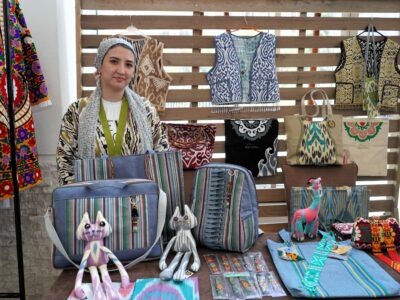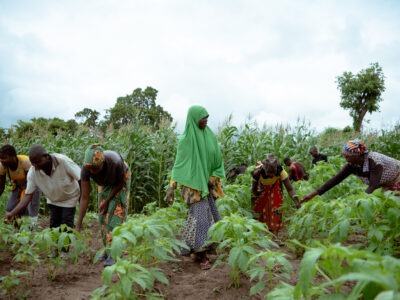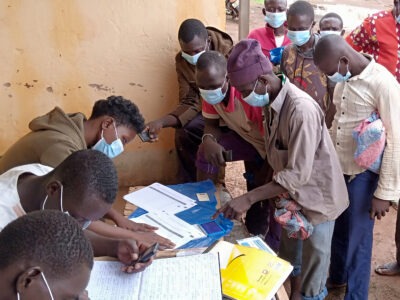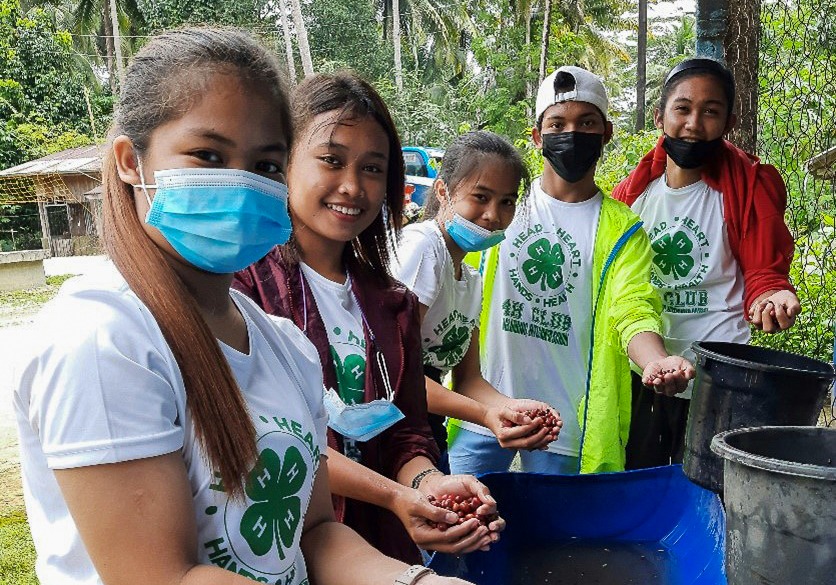
In Tagbina, a town located in the Philippines’s Surigao del Sur, 300 young coffee farmers and students organized themselves as the 4H Club of Maglambing Integrated School. These young members will learn how to become responsible leaders and successful coffee growers. With support from the school’s administration, community stakeholders, and the Philippine Coffee Advancement and Farm Enterprise (PhilCAFE), members will gain knowledge and skills through positive youth development.
PhilCAFE is a five-year project funded by the United States Department of Agriculture and implemented by ACDI/VOCA that aims to boost the country’s coffee sector and local livelihoods. Part of the objective of the 4H Club is to intensify coffee production in Tagbina, as the town repositions itself as the coffee capital of Caraga Region — a reputation it once enjoyed in the 1960s.
On July 8, Mayor Glaiza Jane Polizon inducted 11 officers into the club, in the presence of parents, faculty, staff, coffee mentors, the PhilCAFE team, and officials from the Department of Education and other government agencies. These 11 officers have begun the process of becoming young coffee mentors themselves. The Tagbina-based PhilCAFE coffee mentors and faculty trained them in good agricultural practices in coffee production. Together, they learned about coffee rejuvenation, integrated pest and disease management, and more.
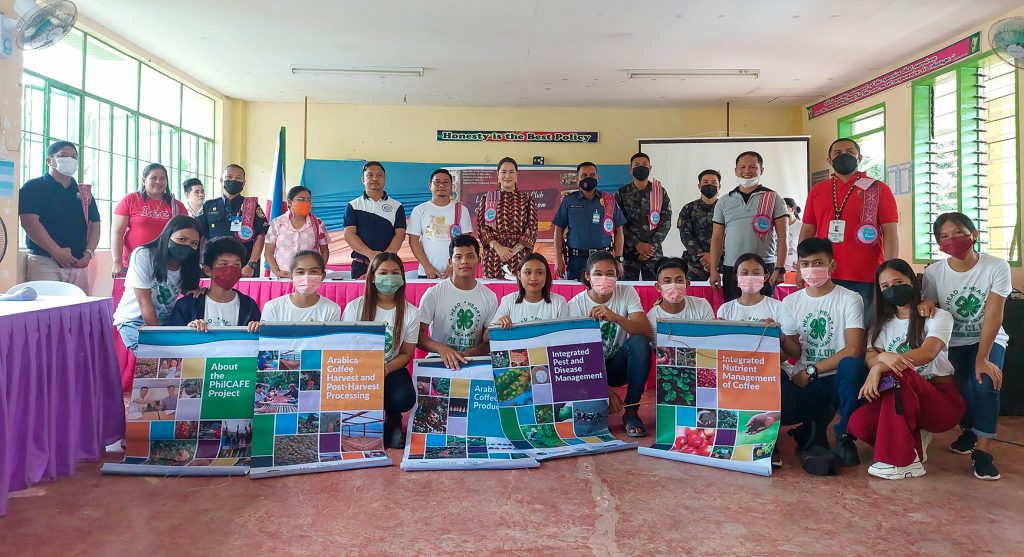
To become young coffee mentors, the 11 officers committed to training at least 300 young coffee farmers and students in their hometown. The move received the support of the school’s administration and the community as part of efforts to promote the coffee sector and positive youth development. By August, they had trained nearly 100 farmers.
After becoming full-fledged young coffee mentors, the Maglambing Integrated School awarded these 11 students with full scholarships, waiving school fees and allowing them free use of the school’s labs and facilities. They will also undergo Gender Equity and Social Inclusion (GESI) training to strengthen their leadership skills and enhance their understanding of GESI concepts and strategies.
Meanwhile, the Maglambing Integrated School’s administration is eyeing integration of coffee education into their curriculum, upon the approval of the Department of Education, to encourage young people to get involved in the sector.
Learn more about the Philippines Coffee Advancement and Farm Enterprise.
Learn more about our work in the Philippines.

